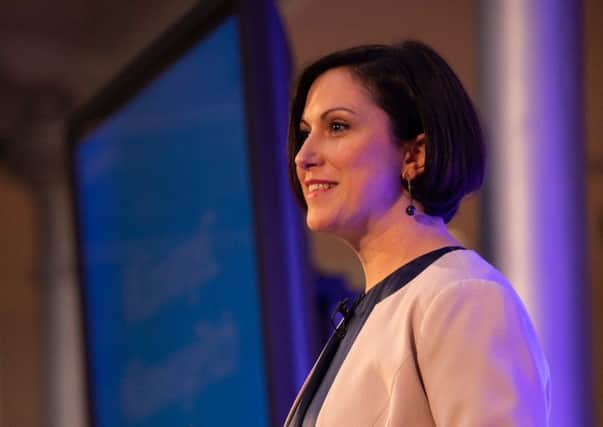Claudia Cavalluzzo: Doing good and doing good business are not mutually incompatible


Why would I, a promising scientist, ever compromise on my principals and support multinationals who are perceived to value profits over people? It took me a long time to come around, to realise that it is only by commercialising the research that scientists and technologists can reach people and help the world become a better place.
However, things are really changing. I truly believe we are entering a new era. An era where doing good and doing business don’t represent the opposite sides of the spectrum.
Advertisement
Hide AdAdvertisement
Hide AdScottish Enterprise, Scotland’s national economic development agency, recently launched their new strategy which is to support “an economically vibrant Scotland making a positive impact on the world”. This sends a strong message that businesses need to play their part in making a societal impact.
The real shift is in the mind-set of social entrepreneurs. Doing good is not a prerogative of charities and social enterprises anymore, but it is expanded to businesses of all nature.
Pioneers in this have been Social Investment Scotland, with the launch of SIS Ventures, a fund aimed at companies that seek to combine more traditional business objectives with the creation of social impact at scale. Similarly, the new Scottish National Investment Bank will focus on investing in projects defined as ‘missions’ and will enable key participants to come together around grand challenges such as climate change.
The trend is also evident at Converge, the leading national entrepreneurial development programme for academic start-ups. We too have seen a rise of interest in business as a force for good. This year we received a record number of applications for our Impact Challenge, where University students are looking to develop new products and services with the purpose of improving the World around us. From new ways to bring clean water to rural communities, to innovative tools to allow non-verbal communication technique to help people with advanced dementia, this new wave of entrepreneurs is changing the rules of business.
This phenomenon is also evident in established companies, who now need to closely look at their Corporate Social Responsibility as well as their values to attract the young work force. It is no longer enough to offer competitive salaries and financial perks to attract new employees. Millennials are looking to work in organisations that share the same values and promote inclusivity and well-being as well as profitability.
Some call this the ‘triple bottom line’, where companies commit to focus on social and environmental concerns just as they do on profits. This is now a necessity, not just a nice thing to do. The companies who adopt this approach are, in my view, the companies who are going to thrive in the future.
The real step change can only come from a different approach to problems and global challenges. Let’s take Climate Change for instance. This is a real emergency, as declared by many world leaders including Nicola Sturgeon a few months ago.
Out of this emergency comes a terrific opportunity for academic institutions, public sector and businesses to collaborate, helping Scotland achieve the ambitious target of being carbon neutral in the next 25 years or earlier.
Advertisement
Hide AdAdvertisement
Hide AdScotland is uniquely positioned to deliver on the promise of creating a cleaner economy over the next decade, thanks to high-quality research, a highly educated workforce, great natural resources and innovative history. It is now time to harness this vast potential and create the foremost, world-leading place for climate change solutions.
So, the answer to the question ‘can businesses be a good business’? Absolutely! Not only can they be, but they ought to be, particularly if they want to thrive in this new era of social good.
Claudia Cavalluzzo is Director of Converge and a finalist in the 2019 Scottish Women’s Awards